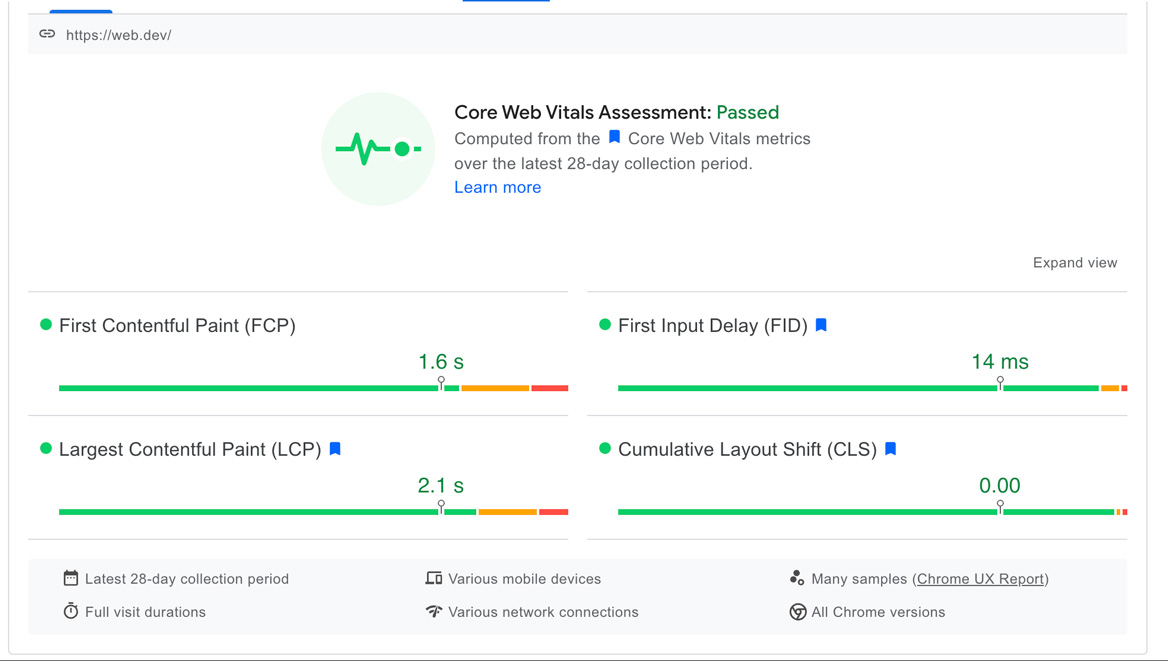How to Improve SEO Rankings

Search Engine Optimization (SEO) is the art of producing great content that ranks well in search engines. And how well search engines position your content is determined by a variety of reasons and algorithmic ranking factors.
Because of the ever-changing nature of those reasons and ranking factors, there will always be new concepts to explore and tactics to apply, but rest assured — many of SEO’s foundations and fundamentals are here to stay.
SEO can be intimidating, but we have great news — you don’t have to be an SEO expert to achieve impressive SEO results. Instead, apply these professional tips and tricks to help you compete online by breaking everything into actionable steps. Doing this will strengthen your strategy, boost your confidence, and help you reach your search result goals with greater success!
The Current State of SEO
The ways in which people use search engines changes constantly. The factors that were once important five years ago have the potential to be eclipsed by trends, new technology, and the different ways we interact with our online environments day-to-day.
Search engines like Google consistently shift their strategies for filtering and positioning the ranking of websites and pages, which means that a good SEO strategy should be adaptable and able to grow over time. In the past, a focus on keyword stuffing and comment backlinks would work very well, but now algorithms prefer to promote websites with strong user experiences and site optimization.
Revitalizing your SEO strategies and taking a more holistic approach can help to navigate the ever-changing search landscape. Here are some time-tested recommendations for doing just that.
Related: On-Page vs. Off-Page SEO
Tips for Improving Rankings
When approaching SEO, breaking it down it categories – Experience, Performance, and Content – allows you to focus on specific areas and can provide some much-needed focus and clarity to the complexities that search engine optimization can present.
Below, with the help of our Pro Services team, we’ve put together a list of the most important areas of SEO to focus on and how to tackle them. These tips will strengthen your organic visibility and provide you with powerful search results and loads of organic traffic now and well into the future.
Experience
Core Web Vitals (CWV)
Google’s Core Web Vitals report shows you how your website is doing in several key performance areas. These specific metrics are determined by Google to be valuable for a user’s overall experience when visiting a webpage.
The Core Web Vitals Assessment is broken up into three specific website performance and user experience measurements:
- Page Load (First and Largest Contentful Paint or FCP/LCP)
- Time to Interactivity (First Input Delay or FID)
- Visual Stability (Cumulative Layout Shift or CLS)

Source: PageSpeed Insights
Once you run the report you can see how your website forms in these specific areas. These results are critically important to your organic presence, as poor scoring in one or more of these categories can negatively impact your search engine rankings.
It is important to note that while having a strong CWV Score is an important aspect of your SEO strategy, it will not necessarily send all of your web pages skyrocketing onto page 1. With over 200 ranking factors that can affect position in Search, it is just a piece (albeit an important one) of the overall SEO pie. Yum.
Other Important Experience Metrics
In addition to Core Web Vitals, Google is taking into consideration other key experience metrics that can influence a site’s ranking, including:
- Mobile-Friendliness
- Lack of obtrusive popups
Mobile-Friendliness
If you aren’t considering how your website runs on a mobile device, you can consider yourself a few steps behind and need to update your website and SEO strategy for mobile pronto. Today it is not optional but necessary to optimize your site for mobile as well as desktop browsing. This is called making your website responsive and includes factoring in both speed and usability since the goal is for your site to run optimally on any size screen or device.
When designing your website for desktop, consider if the links and popups will translate effectively to a mobile screen, will the site function seamlessly and still be intuitive to use? Thankfully, with site builders like WordPress, themes and plugins are created with a responsive design in mind. The key to minimizing errors in the process is to check your site consistently on several different devices to ensure everything is user-friendly and working how you intend it to.
Remove Obtrusive Popups
Building trust with your site visitors is a highly important aspect of implementing a smart SEO strategy. While popups are a common marketing tool that leads to some favorable results when used correctly, a site that features obtrusive popups in a poorly designed manner can quickly diminish the trust of your visitors in potentially detrimental ways that affect your website rankings and reputation.
Because nobody wants to visit a site with dozens of popups preventing them from engaging with content or slowing down their ability to go through a transaction process, eliminating any unnecessary popups is key. The best way to avoid this is to use page experience best practices. Optimize your site for usability, and speed, ensure overlays do not block content.
Get Content Delivered Straight to Your Inbox
Subscribe to our blog and receive great content just like this delivered straight to your inbox.
Performance
Improve Your Technical SEO
Improving technical SEO refers to the process of ensuring that your website is compatible with technical and accessibility standards set by search engines. There are three main aspects of technical SEO to consider; page speed, mobile-friendliness, and security.
Both mobile friendliness and page speed are aspects of your technical SEO that factor into the experience of your website visitors and will usually be addressed when looking into your Core Web Vitals. When looking at your site’s security, one of the main factors to consider is HTTPS. Search engines and users alike very much prefer web experiences to be fully encrypted and secured with an SSL Certificate, especially when collecting sensitive personal information from its users.
It is important to scan for broken links when considering your website’s page experience, but it is also important to crawl for 404 errors in relation to the technical side of SEO. The best way to address this is to ask Google to re-crawl your URL’s anytime you make a change or adjustment to your site. It generally takes a few days for Google to conduct the inspection, but be patient and monitor the progress using Index Status Report or URL Inspection Tool.
Utilize third-party tools to review your page experience to help guide you and your technical SEO strategy. Online tools such as PageSpeed Insights, GT Metrix, Pingdom, and Lighthouse can all be helpful in providing these actionable insights.
As you continue to further apply your technical SEO, be sure to take into consideration optimizing your website images by resizing and compressing them before adding to your site, or use a WordPress plugin to automatically optimize the images for you. Pages will load faster and more efficiently when correctly optimized, you can also enable lazy-loading to strategically identify resources as non-blocking (non-critical) and load these only when needed.
Optimize Your Site for Speed
Overall performance and site speed go hand in hand. So much of technical SEO optimization is focused on ensuring every aspect of your site works properly to keep up with speed expectations. The importance of maintaining fast page load times bears repeating. As a site is not solely viewed on a desktop computer with a stable wifi connection, it needs to be optimized to load quickly on every device and browser and consider certain factors that could diminish site performance and speed.
We have written extensively around the importance of this broad SEO factor and encourage you to explore more comprehensive ways to speed up your site in general, including taking a look at our full series of tutorials on performance optimization.
Related: Boost SEO on Your WordPress Website
Use Schema to Enhance Search Results
Schema is structured data that can help web browsers and search engines gain a deeper understanding of your page’s content. By adding this markup, you can improve how your website displays (and ultimately ranks) in Search Engine Results Pages (SERP).
It is recommended that Schema be used to enhance content such as creative works, events, recipes, organizations, people, and products. For example, a search result using Schema will display richer information than one without.

As you can see in the example, one of the results displays ratings, images, and more. You can manually add this kind of markup to your posts, or you can use one of the many tools available to test and improve your structured data. Fortunately, if you’re not prepared to tinker with the HTML of your posts, you can employ a dedicated plugin to help you take advantage of this SEO functionality.
Additionally, you can review Google’s own structured data guidelines, as well as numerous reports offered in their webmaster tools. Ultimately, Schema is a vital addition to your website if you want search engines to read your products’ details rather than view your content as non-descript text.
Content
Using Video to Enhance Your SEO Strategy
An important thing to acknowledge in regards to SEO is that it is not all about text. YouTube ranks as the second largest search engine, and if you aren’t taking that into consideration, you are leaving out a huge chunk of SEO and content opportunities.
The easiest way to start incorporating video into your SEO strategy is to simply include videos on your website. Search engines consider the quality of your content and the length of time users stick around as ranking factors. By using video, you can improve both metrics.
Look To Your Competitors for Ranking Opportunities
Your competitors can help provide comparative insight that could help you prioritize different SEO strategies and pick up on any emerging areas you might have missed. One way to utilize your competitors for your SEO benefit is to run a Content Gap Analysis.
Using tools such as Ahrefs, Semrush, and SpyFu, you can quickly understand what topics your competitors are writing about and what keywords they are attempting to rank for. You can then easily compare where there are areas of opportunity, or “gaps” in your own content strategy.
Related: 20 Ways to Come Up With New Content Ideas
Ramp Up Your investment in High-Quality Content
While tips, tricks, and tools can all be incredibly helpful towards building a strong SEO strategy, prioritizing and investing in high-quality content is the number one most important thing you can do. Some of the base foundational content that this investment should include are:
- Structured plans to produce more blog content
- Continuously looking for opportunities to expand your core page count (especially the products and services pages)
- Create more videos to feed into your YouTube presence
- Send more content via your email lists as a way to leverage your owned media and pull in more website traffic.
The quality of your content matters in your marketing strategy, because it will increase your trust and reputation amongst your visitors. Being a trusted source for content, delivering information that people want to engage with increases the chances of content being shared across social media platforms. While volume is important, quality is going to be the defining factor in how the content impacts your SEO.
Rankings Within Reach
As SEO professionals, we understand better than anyone that grasping an expert level knowledge of SEO strategy is a lofty goal, but by breaking your strategy down into manageable bites, and utilizing every online toolkit, resource, and tip available to you, laying out a highly effective SEO strategy is available at even the most beginner level.
And should you need additional help, there are always seasoned experts available on our Pro Services team.
Search Engine Optimization Made Easy
We take the guesswork (and actual work) out of growing your website traffic with SEO.

